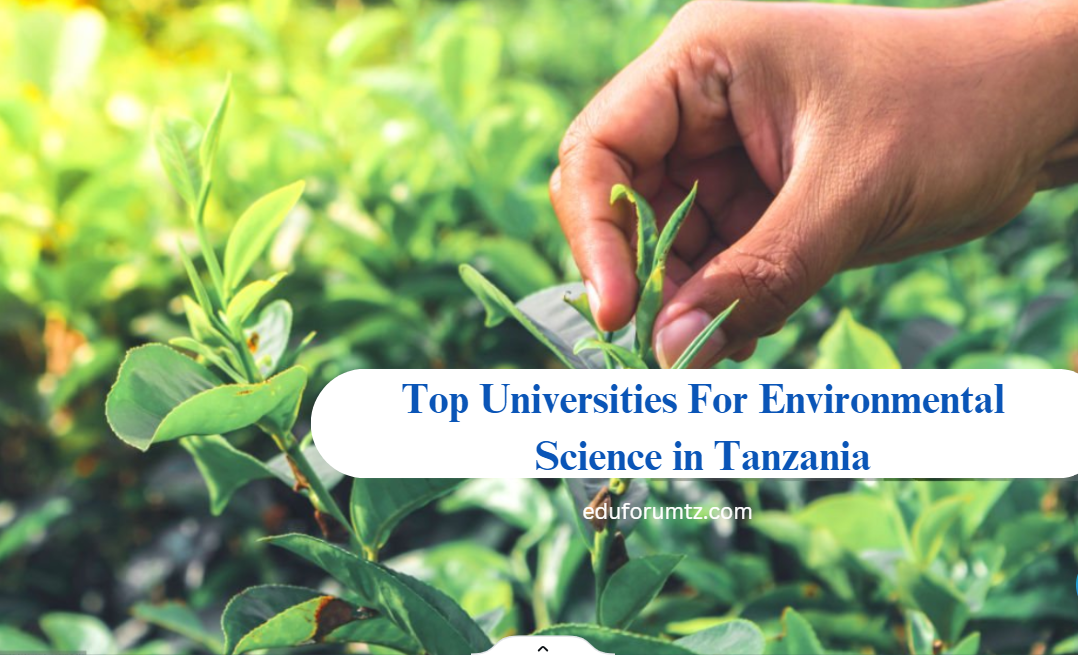
Finding the right university to study Environmental Science in Tanzania can be a pivotal decision for future environmental professionals. The best universities in Tanzania for Environmental Science offer strong research programs, experienced faculty, and a commitment to sustainability. These institutions equip students with the necessary skills and knowledge to tackle the nation’s environmental challenges.
Tanzania boasts several universities that excel in this field, providing students with opportunities for hands-on experience and research collaboration. Prospective students can look into programs that emphasize practical learning and foster a deep understanding of local ecosystems and environmental management practices.
By choosing one of these top universities, students can prepare themselves for a rewarding career in environmental science, addressing critical issues such as climate change, conservation, and resource management. The journey to becoming an environmental leader starts with selecting an institution that prioritizes academic excellence and environmental stewardship.
Criteria For Evaluating Programs
When choosing a program in Environmental Science, several factors play a crucial role. These include academic excellence, research opportunities, faculty expertise, and alumni success. Each of these aspects can significantly impact a student’s educational experience and professional future.
Academic Excellence and Curriculum
Academic excellence is paramount in evaluating Environmental Science programs. Students should examine the curriculum for a balance of theoretical knowledge and practical application. Programs that align with Tanzania’s environmental challenges will better prepare graduates.
Key components often found in a strong curriculum include:
- Core courses in ecology, conservation, and sustainable development.
- Electives that cover specialized topics like climate change and environmental policy.
- Opportunities for field studies and internships that provide real-world experience.
A well-rounded curriculum equips graduates with knowledge applicable to local and global environmental issues.
Research Opportunities and Facilities
Research opportunities are vital for students looking to make a significant impact in the field. Institutions should provide access to state-of-the-art facilities and resources for effective research.
Important aspects to consider are:
- Availability of laboratories equipped with modern technology.
- Access to study sites for environmental assessments.
- Collaboration with local organizations on research projects.
Programs that prioritize research contribute to students’ skills and experience. Real-world projects enhance learning and foster innovative approaches to environmental challenges.
Faculty Expertise and Diversity
The qualifications of faculty members significantly influence the quality of education. Experienced faculty with diverse expertise can offer students valuable insights and mentorship.
Points to evaluate include:
- Academic credentials of faculty, such as advanced degrees and relevant research.
- Professional experience in governmental or non-governmental organizations related to environmental issues.
- Diversity of the faculty brings different perspectives to the learning environment.
Faculty members who are actively involved in ongoing research can enrich the academic experience by connecting theoretical concepts to practical applications.
Alumni Success and Career Prospects
Alumni success serves as an indicator of a program’s effectiveness. Evaluating career prospects can guide students in making informed decisions.
Key considerations include:
- Employment rates for graduates in Environmental Science.
- Types of organizations that hire alumni, such as governmental agencies, NGOs, or private companies.
- Alumni involvement in mentorship programs or networking events.
Programs with successful alumni often provide students with valuable networking opportunities and career guidance, enhancing their chances for success after graduation.
Top Universities For Environmental Science in Tanzania
Career Prospects for Graduates
Graduates in Environmental Science from universities in Tanzania have a range of career opportunities. They can work in various sectors that focus on environmental protection, conservation, and sustainable development.
Common Career Paths:
- Environmental Consultant: Advises businesses on environmental impact and compliance.
- Wildlife Biologist: Studies wildlife populations and habitats.
- Environmental Educator: Teaches communities about environmental issues and sustainability.
- Conservation Officer: Works with government and NGOs to protect natural resources.
- Sustainability Manager: Develops policies to reduce an organization’s environmental footprint.
Job Sectors:
- Government Agencies: Many graduates find positions within local or national environmental departments.
- Non-Governmental Organizations (NGOs): These organizations often hire for roles focused on conservation and community education.
- Private Sector: Companies increasingly require environmental specialists to ensure compliance and to implement sustainable practices.
With the growing awareness of environmental issues, the demand for skilled professionals is expected to rise. Graduates can expect competitive salaries and opportunities for career advancement. The skills gained during their studies prepare them for impactful roles in addressing critical environmental challenges.
Final thoughts
Pursuing a degree in Environmental Science in Tanzania offers valuable opportunities. Students can engage in critical research and projects that address local and global environmental challenges.
Several universities stand out in this field. They provide strong academic programs and substantial research opportunities.
Those institutions rank highly due to their research performance. They also foster collaboration between students and experts in environmental science.
Students in these programs can expect to gain practical experience. This experience is crucial for future careers in environmental management, conservation, and sustainability.
Choosing a university with a solid reputation will enhance one’s educational experience. It may lead to better job prospects after graduation as well.
The future of Environmental Science in Tanzania looks promising. With committed students and dedicated universities, significant progress is possible in addressing pressing environmental issues.
Also Read;
- Top Universities For Liberal Arts and Social Sciences in Tanzania
- Top Ranking Universities in India
- Top Universities For Education Majors in Tanzania
- Top Universities For Environmental Science in Tanzania
- Top Ranking Forestry Schools in Tanzania
- Top Ranking Forestry Schools in Tanzania
- Top Universities For Pediatrics in Tanzania: Leading Medical Institutions
- Top Universities For Zoology in Tanzania: Top Ranking
- Top Universities For Chemistry in Tanzania

